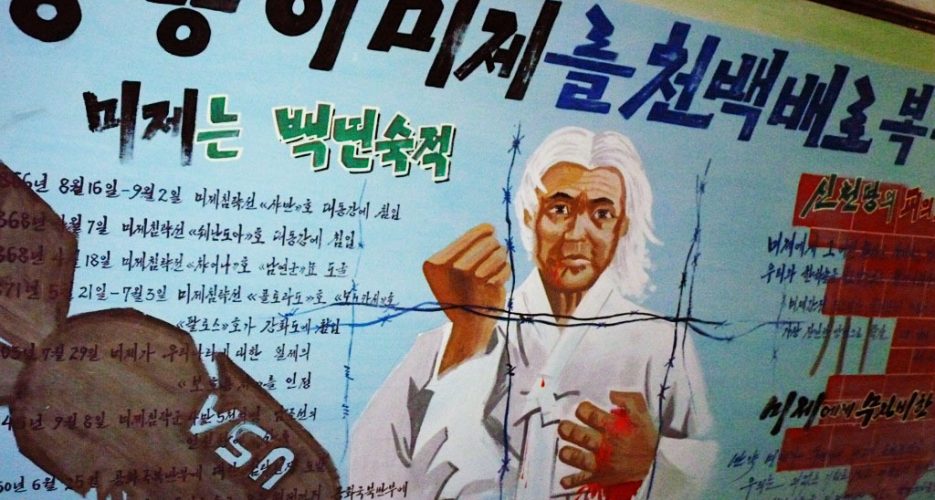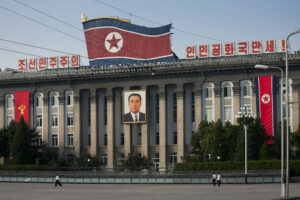The Yanggakdo Hotel in Pyongyang was completed in 1995, during the peak of the country's worst famine - the Arduous March. With several hotels already existing in North Korea’s capital city, it is quite hard to understand what motivated authorities to build another large facility at that time – except that this was the first, and to date only, hotel to be situated remotely on an island. For a country that does its best to keep tourists and locals separated at all times, the obvious benefits of an island hotel are clear to see. It avoids uncomfortable questions from tourists about restrictions on movement during tours (visitors roam the island freely during their stay), and minimizes the exposure locals have to affluent foreigners. But what about those North Koreans who have to work at the Yanggakdo hotel?
Most hotels in North Korea that are used for international visitors are absent of both propaganda campaign posters and portraits of the Kims. Featuring plenty of curious and talkative foreigners, rooms with TVs that can pick up BBC, CNN and CCTV, and in some cases even boasting broadband internet connections, these hotels can be a source of potentially destabilizing information for some North Koreans. This is especially so for those workers that are permanently based in the hotels they must work in; engineers, cleaning staff, and security operatives. For people like these, the work environment might even be enough to challenge deeply engrained concepts regarding foreigners, and potentially undermine faith in government credentials. Faced with this dynamic, the designers of the Yanggakdo took some fascinating steps to mitigate the effects that hotel work might put on staff.
The Yanggakdo Hotel in Pyongyang was completed in 1995, during the peak of the country's worst famine - the Arduous March. With several hotels already existing in North Korea’s capital city, it is quite hard to understand what motivated authorities to build another large facility at that time – except that this was the first, and to date only, hotel to be situated remotely on an island. For a country that does its best to keep tourists and locals separated at all times, the obvious benefits of an island hotel are clear to see. It avoids uncomfortable questions from tourists about restrictions on movement during tours (visitors roam the island freely during their stay), and minimizes the exposure locals have to affluent foreigners. But what about those North Koreans who have to work at the Yanggakdo hotel?
Most hotels in North Korea that are used for international visitors are absent of both propaganda campaign posters and portraits of the Kims. Featuring plenty of curious and talkative foreigners, rooms with TVs that can pick up BBC, CNN and CCTV, and in some cases even boasting broadband internet connections, these hotels can be a source of potentially destabilizing information for some North Koreans. This is especially so for those workers that are permanently based in the hotels they must work in; engineers, cleaning staff, and security operatives. For people like these, the work environment might even be enough to challenge deeply engrained concepts regarding foreigners, and potentially undermine faith in government credentials. Faced with this dynamic, the designers of the Yanggakdo took some fascinating steps to mitigate the effects that hotel work might put on staff.
Try unlimited access
Only $1 for four weeks
-
Unlimited access to all of NK News: reporting, investigations, analysis
-
Year-one discount if you continue past $1 trial period
-
The NK News Daily Update, an email newsletter to keep you in the loop
-
Searchable archive of all content, photo galleries, special columns
-
Contact NK News reporters with tips or requests for reporting
Get unlimited access to all NK News content, including original reporting, investigations, and analyses by our team of DPRK experts.
Subscribe
now
All major cards accepted. No commitments – you can cancel any time.











